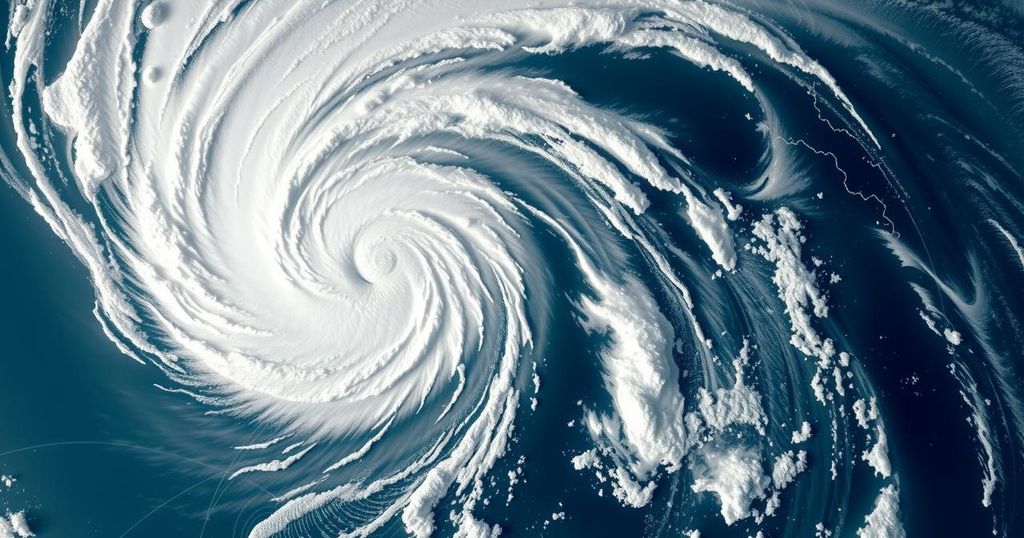Tropical Cyclone Chido Hits Mozambique: Impact and Preparations for Affected Regions
Tropical Cyclone Chido made landfall in Mozambique on 15 December, impacting over 1.7 million people with destructive winds and heavy rainfall. The cyclone is projected to affect southern Malawi with substantial rainfall and winds as it dissipates near Zimbabwe by 17 December. Preparations are in place to mitigate the humanitarian impact.
On 15 December 2024, Tropical Cyclone Chido struck Mozambique, making landfall as a Category 4 cyclone with maximum sustained winds of 260 km/h and rainfall exceeding 250 mm in 24 hours. The cyclone primarily affected the Cabo Delgado and Nampula provinces, where it caused significant disruptions, including damage to infrastructure and downed communication networks. Following its passage through Mozambique, Chido’s remnants are projected to impact southern Malawi with heavy rain and strong winds before dissipating near Zimbabwe on 17 December. Approximately 1.7 million people in Mozambique and 440,000 in Malawi are anticipated to be affected, and governments along with UN partners are engaged in ongoing assessment and preparedness efforts to mitigate the storm’s impact.
The cyclone developed in the southeastern Indian Ocean on 7 December and strengthened to Category 4 by 10 December, before weakening to Category 3 prior to its landfall. Compounding the threat, heavy rains more than 150 mm are forecast for northern Mozambique, Malawi, Zimbabwe, and Zambia, raising the potential for flash floods and mudslides. Preliminary reports indicate two injuries and displacements in the Comoros islands, where Chido passed with relatively lower impact than in Mozambique. The Department of Climate Change and Meteorological Services (DCCMS) in Malawi has been actively monitoring the weather patterns and potential impacts of the cyclone, which is expected to bring up to 110 mm of rainfall in certain areas upon its entry into Malawi on 16 December.
Residents in the affected areas are cautioned to remain vigilant and adhere to updates from their national meteorological services. The international humanitarian community is poised to assist in the response efforts as the situation unfolds.
Tropical cyclones are severe weather phenomena characterized by strong winds and heavy rainfall, often resulting in significant humanitarian crises. Mozambique, situated along the southeastern coast of Africa, is highly vulnerable to such climatic events due to its geographical positioning. Tropical Cyclone Chido’s formation and trajectory during December 2024 exemplify the patterns observed in worsening climate conditions in the Indian Ocean. As Cyclone Chido worsened, partnerships between local governments and international organizations, such as the United Nations, became vital in facilitating rapid response measures to support and protect vulnerable populations.
Tropical Cyclone Chido represents a significant meteorological event impacting southern Africa, particularly Mozambique and Malawi. With landfall marked by catastrophic winds and rainfall, the humanitarian implications are vast, necessitating concerted efforts for response and recovery. The collaboration among government and humanitarian agencies reflects a robust approach to mitigate the cyclone’s effects and protect affected communities from further risks associated with ongoing severe weather patterns. Monitoring and preparedness will be crucial in minimizing additional impacts as Chido’s remnants traverse southern Africa.
Original Source: reliefweb.int




Post Comment